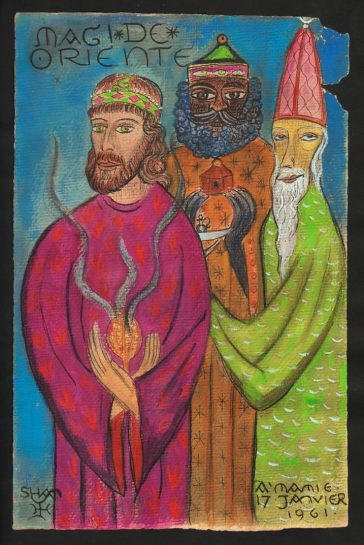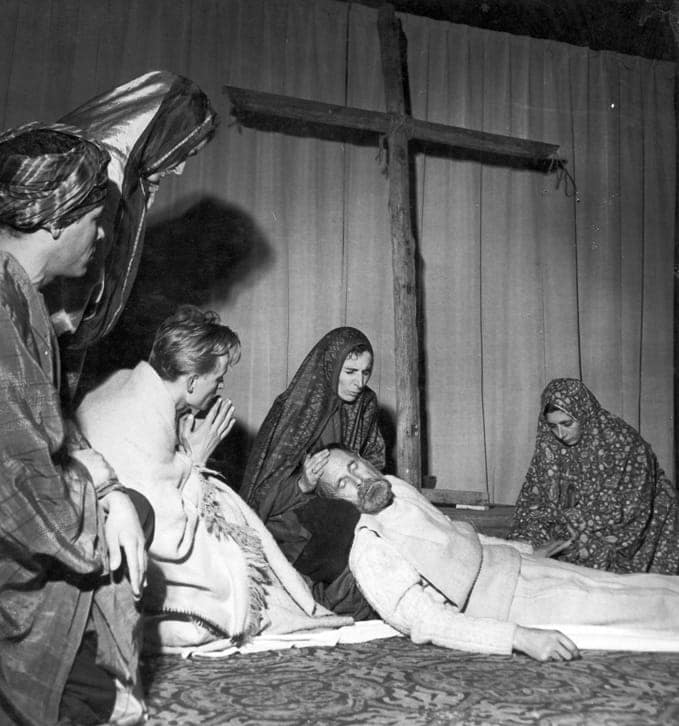A powerful staging of humans’ sins and salvation of the world through biblical narratives. Colorful and typical characters. Direct and solemn language like in ancient tragedy.

Lanza del Vasto’s theatrical work takes inspiration from the Bible. Medieval mysteries, performed in the past in squares in front of churches, are his model.
Two plays are related to the Old Testament: Noé (1965) and David berger (1988). The two most important plays are related to the Gospels: La Marche des rois (1944) et La Passion (1951).
Lanza opted for a rather free writing style, sometimes in rhythmic prose, sometimes in more or less regular verses. But he always ensured rhythm and assonance, which gives a certain power of utterance to the text. Without emphasis but with lyricism, he has us share the emotions of his characters and participate in their actions.
These plays are not shows involving public stage and recognized actors. They were often performed under a porch roof or in the barn by community members. Tree Kings walk, for example, is a live creche, which is quite similar to the Pastoral of the santons of Provence. Also, in the Passion, a choir is speaking to members of the audience, so that everybody feels himself involved.
For this theatrical work is not a funny entertainment at all. It deciphers men history, like poetry aims to decipher beings from the world. Accordingly, Lanza del Vasto’s plays are resolutely tragic: they bring us in a story full of suffering and difficult issues.
This is particularly visible, of course, in the Passion but also in Noé, this “antediluvian futuristic tragedy”. We find out a patriarchal family, which is torn between traditional values and lure of money.
As for David berger, it has nothing bucolic: the tragedy of jealousy is staged through King Saul hatred.
Like other aspects of his work, Lanza del Vasto’s plays don’t need to be numerous to be significant. In only four writings, the author gives a voice and a message that cannot be forgotten.

